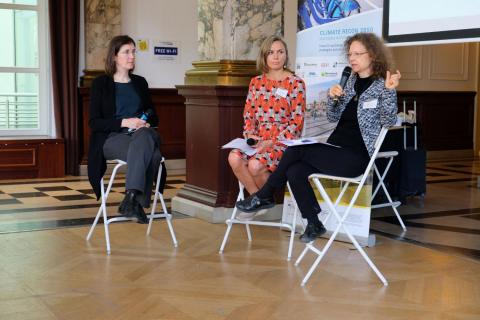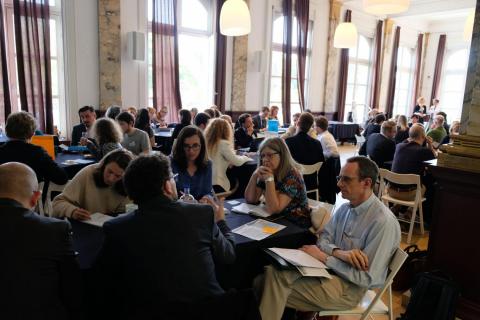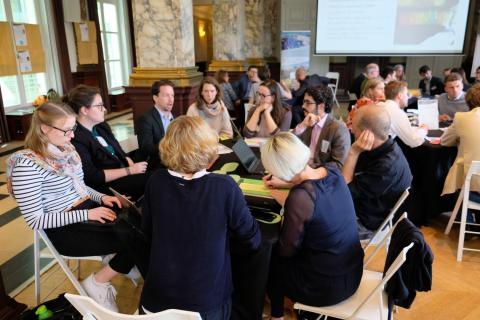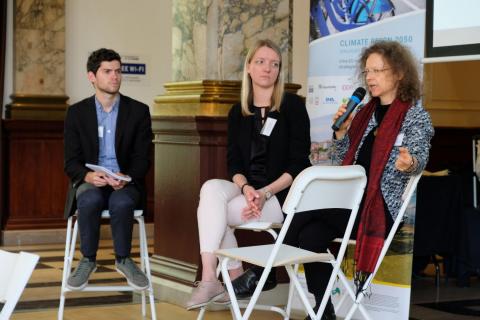Conference: Planning for 2050
At the end of 2019, all EU Member States must have a national long-term climate strategy. Around half of them have already undertaken such 2050 planning exercises in recent years to help put them on a path towards drastic emission reductions. In fact, some are already reviewing existing strategies – increasing their ambition in the wake of the Paris Agreement.
The conference “Planning for 2050” took stock of the experience gained in Europe and presented lessons learnt as well as challenges encountered in different Member States – seeking to connect them to the EU’s own overall 2050 vision.
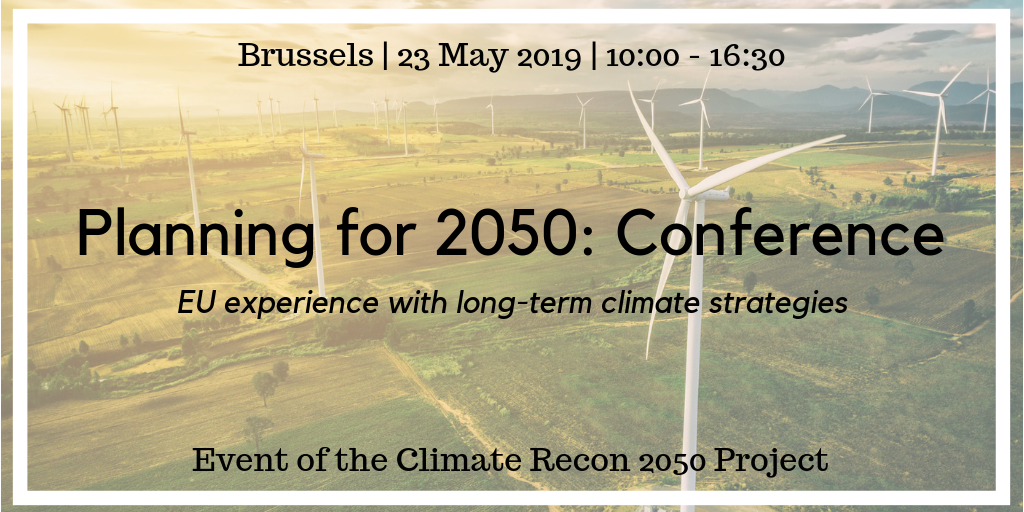
The conference brought together a range of relevant stakeholders (governments, civil society, business) in an innovative setting, with space for interaction and feedback.
During an interview session on stage, Getlyn Denks from Estonian Ministry of Environment and Dr Silke Karcher from the German Ministry for Environment emphasised the role of long-term climate planning as an opportunity to chart a clear pathway, create a shared vision across governmental stakeholders and ensuring countires can meet their climate targets without damaging their economies.
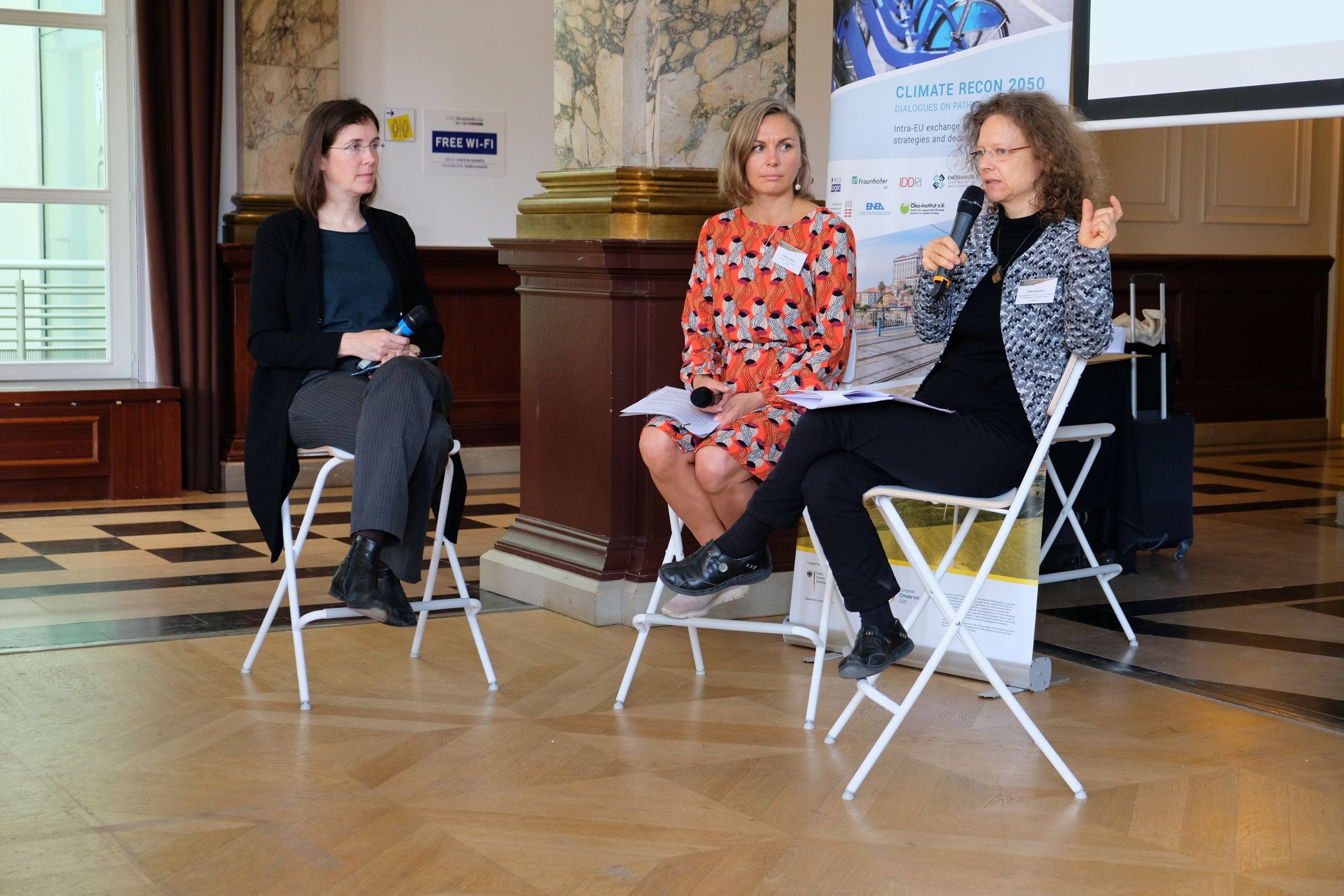
Technical experts Yves Marignac of negaWatt institute and Katarina Trstenjak from Jozef Stefan Institute emphasised the importance of clear, holisitic vision to design comprehensive decarbonisation policies and avoid emergence of counter measures that offset benefits achieved through climate policy. The experts emphasised that the challenge of achieving net-zero reduction requires systemic analysis and thinking. This includes shifting away from sectorial to cross-cutting approach in policymaking and modelling to explore new decarbonisation potentials.
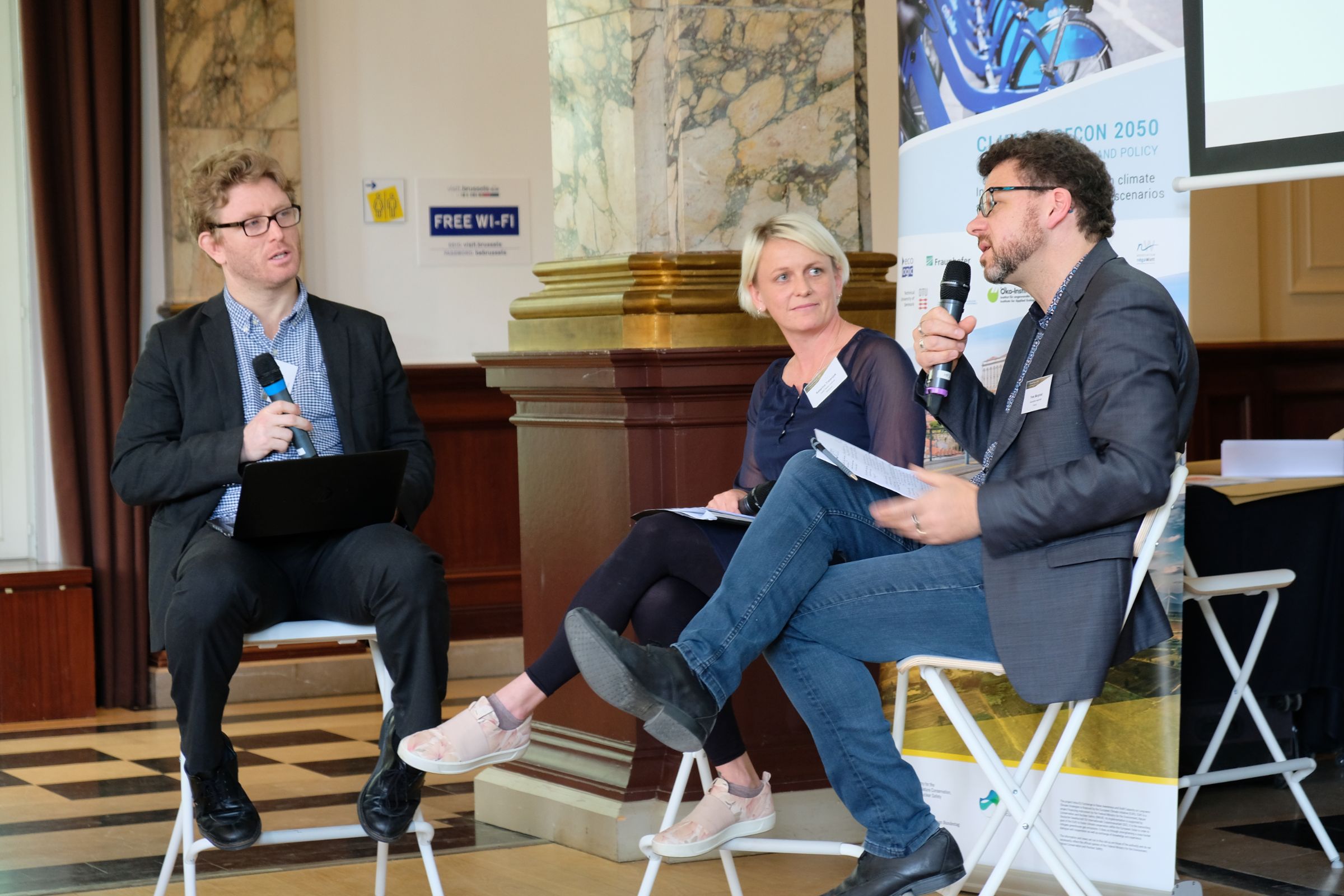
During the conference participants also had a chance to participate in interactive break out sessions in smaller groups, focusing on specific technical and policy aspects of long-term climate planning. Moreover, representatives of Estonia, France and Germany presented their country's approaches to long-term climate planning.
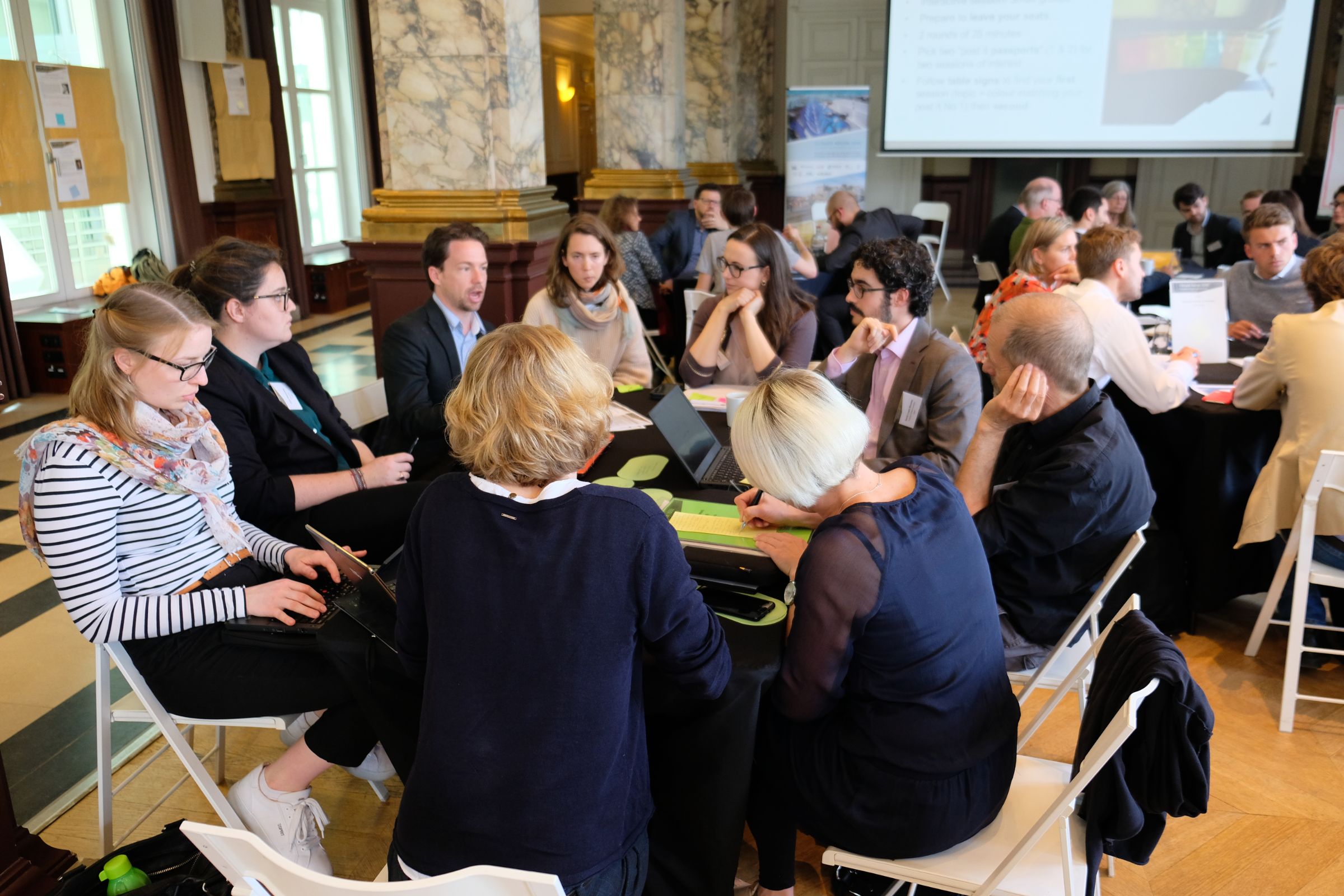
In the final, closing panel, representatives of European Commission (Tom van Ierland, DG CLIMA), Member State (Robert Jeszke, KOBiZE, Poland) and industry (Florie Gonsolin, CEFIC) provided their perspectives and visions for the climate-neutral EU by 2050.
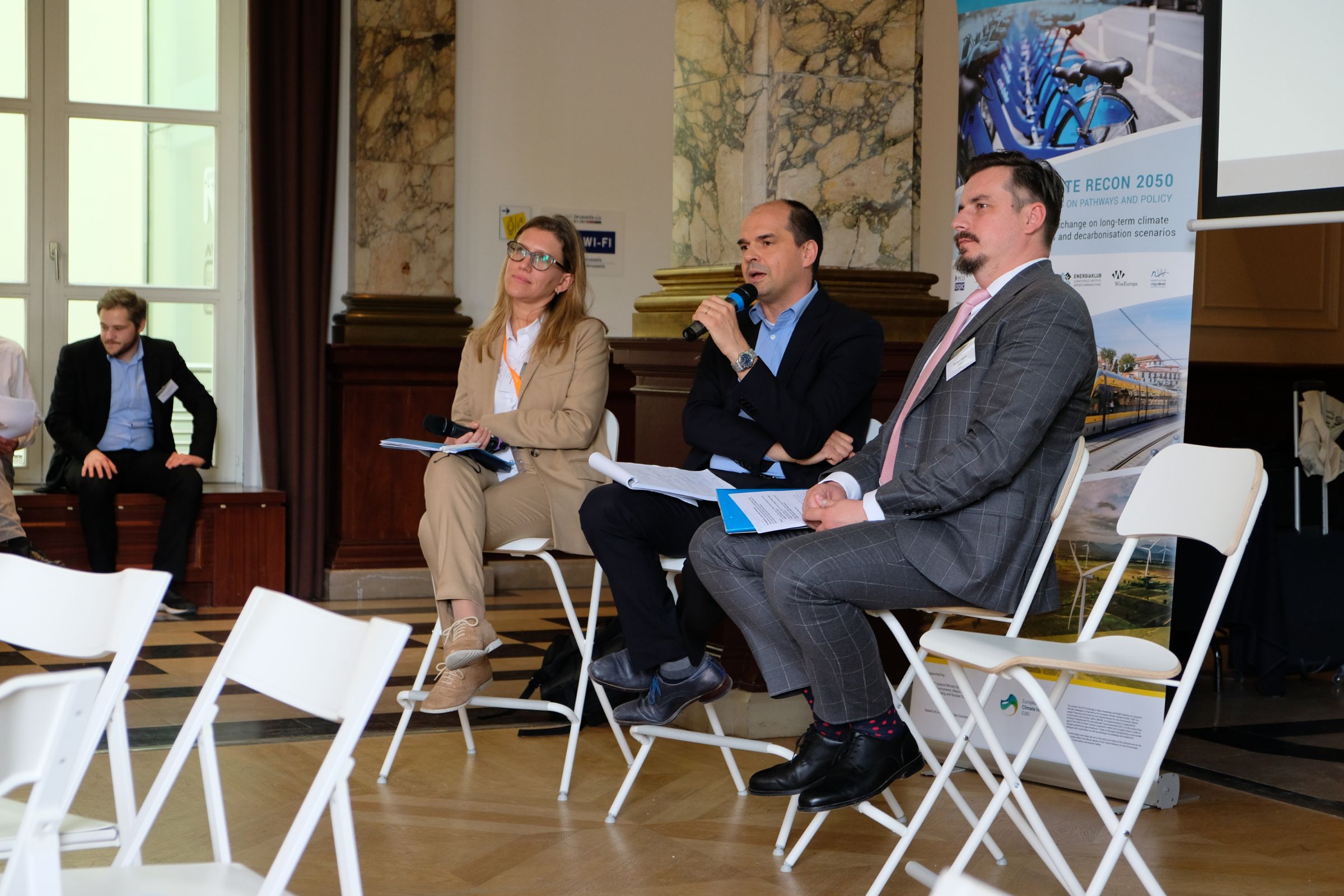
We are grateful for the support and encouragement from the many people involved in the project and this event, the dedication of the project team and the financial support from the European Climate Initiative (EUKI) of the German Ministry for the Environment and the Stiftung Mercator.

